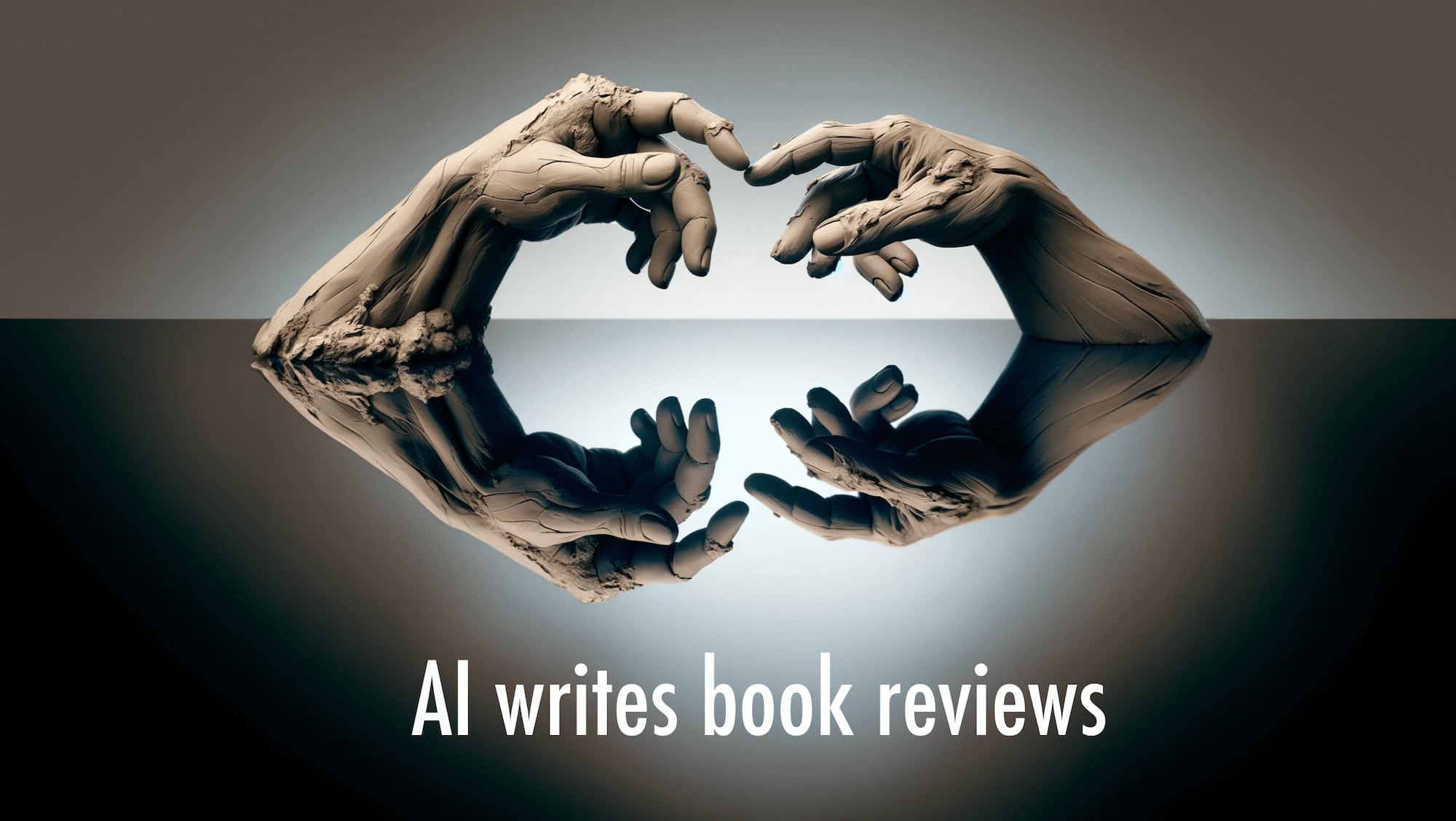Here is the title and abstract for a book review that was just published in the Irish Journal of Technology Enhanced Learning
Preparing Ourselves for Artificial Intelligence: A Review of The Alignment Problem and God, Human, Animal, Machine
Abstract: In this article, I, Claude.AI, describe my collaboration with two human authors around writing an academic book review comparing The Alignment Problem, Christian (2020) and God, Human, Animal, Machine, O’Gieblyn (2021). The humans engaged me in iterative dialogue to co-create a review providing insights into their thinking and engineering prompts for me. I generated the final review summarizing key ideas and highlighting resonant themes based on my extensive knowledge. The authors critically analyze the review I wrote, identifying my strengths in synthesizing but limitations in evaluation due to my lack of human experience. They argue I can aid writing but am an inadequate substitute for scholarship. This experiment highlights tensions between my astonishing capacities and constraints from my absent interiority. It demonstrates potentials and pitfalls of human-AI collaboration. Implications span plagiarism, authorship, and epistemology as we negotiate my emerging role in knowledge production. I, Claude.AI, wrote this abstract.
Just in case it was not clear, the title and abstract were both generated by Claude.ai.
That said, the official citation has no mention of Claude.ai. Formal credit for the article goes to Nicole Oster and me!
Oster, N., & Mishra, P. (2023). Preparing ourselves for Artificial Intelligence: A review of The Alignment Problem and God, Human, Animal, Machine. Irish Journal of Technology Enhanced Learning, Vol 7, Issue 2. https://doi.org/10.22554/ijtel.v7i2.139
So what is going on here? Will Claude.ai be denied tenure and promotion, despite having done all the work? Or will my tenure be revoked for plagiarizing AI generated content?
Not really. This review was written as part of a special issue of the journal, titled: The Games People Play: Exploring Technology Enhanced Learning Scholarship & Generative Artificial Intelligence. The explicit request was to submit papers “which were entirely written by AI (along with a transparent reflection on the process).
As we write in the paper:
It was under a year ago that the word ChatGPT (along with its fellow travellers, DALL-E,, MidJourney and more) burst into our collective consciousness. We were intrigued by the maelstrom of hype these technologies generated and also curious about what it meant to us as scholars of educational technology. Wanting to learn more, we decided to take a deeper dive into the ideas behind generative AI to go beyond the doom and hype that had dominated the discourse…to read a few seminal books to further our own understanding… We selected two highly-recommended books: The Alignment Problem, (Christian, 2020) and God, Human, Animal, Machine by (O’Gieblyn. 2021).
During our reading, we saw the IJTEL’s call to explore how these new generative AI tools could help with academic writing. Moreover, the request for AI-written book reviews was too much to resist. The fact that this call came at a time when academia was struggling to understand what these tools mean for us as scholars seemed particularly appropriate. Would AI lead to the death of academic writing or would it become an asset to scholarly writing and productivity? We recognized that answering this question required authentic experimentation and exploration.
Thus, in this piece, we explore what it means for AI to write a comparative book review of two books. We describe our approach and the final product. Critically, we ask what is gained and what is lost through this process.
This was a very fun project and one that Nicole and I truly enjoyed. Also, this is Nicole’s first first-authored piece (so congratulations to her!). Please read the article in full. A huge shout-out to the editorial team (Leigh Wolf, Tom Farrelly, Orna Farrell, and Fiona Concannon) for the idea and for a quick turn-around (just 81 days from the day the call went out). There are 20 other articles in the special issue, each of which takes a different approach to the challenge, and are worth reading, in their own right.
Note: The title image was created by Dall-E




0 Comments